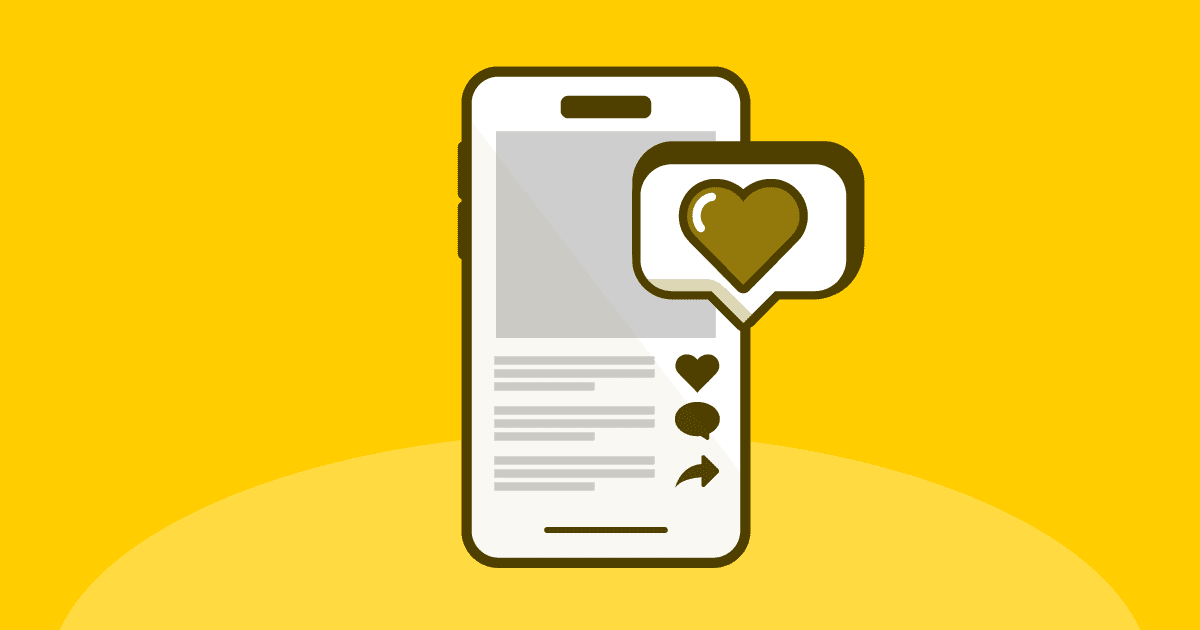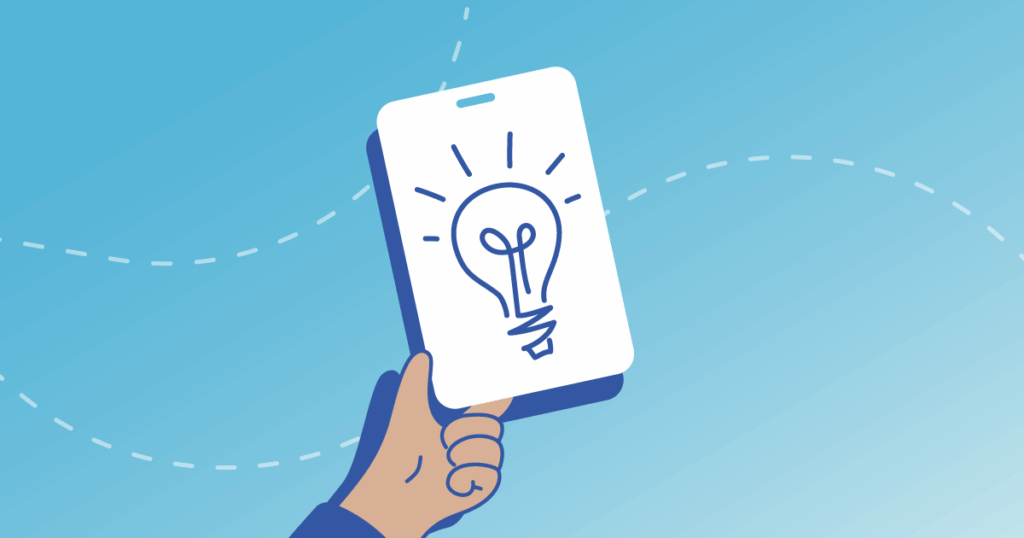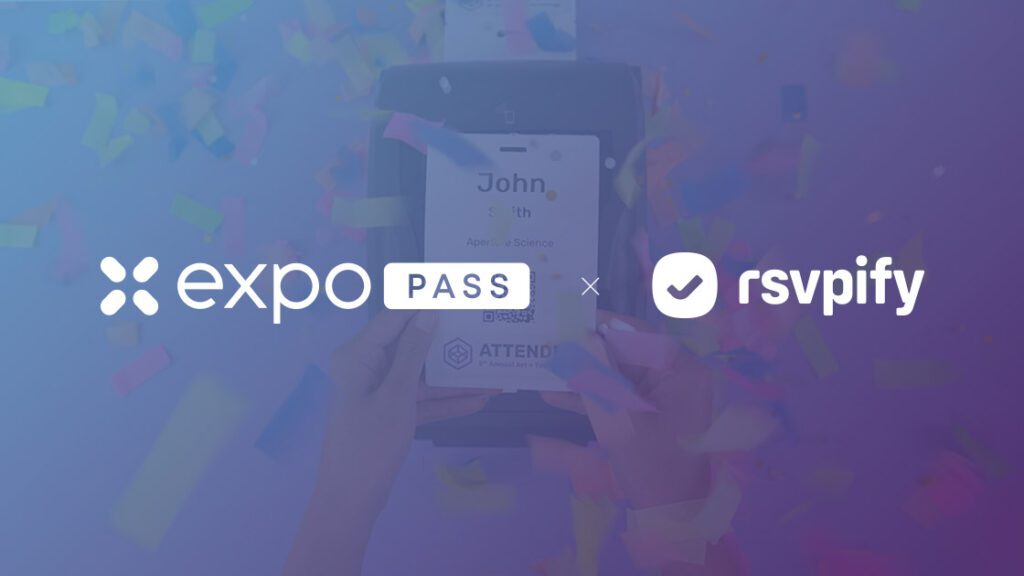As the saying goes, “The more you know, the better you can plan!” Okay, maybe we made up that last part—but it’s still true! A deep understanding of attendee behavior empowers event planners to create unique, strategic, personalized experiences that make an impact.
Tracking attendees isn’t just about looking back, either. New event technology can track attendee behavior in real-time, allowing you to make instant changes that prevent your event experience from becoming one among many forgettable experiences. Tracking attendee behavior starts well before the event begins and continues well after it ends.
If you want to know how attendee data can elevate your event planning prowess, read our guide on the benefits and best methods for tracking attendee behavior.

How it benefits your events.
We live in an increasingly data-driven world, owing mainly to our reliance on modern technology. There’s almost no difference now between event planning and digital-first event planning since some digital technology will almost always be used. You’ll risk falling behind if you don’t embrace these strategic trends.
Data tracking is the key to measuring your event’s success. You’ll see whether you hit your target numbers by comparing the final attendance numbers to initial registrations and attendance expectations. It also shows event planners where attendees were most engaged, where hiccups disrupted the event and other crucial details of the experience.
Attendance tracking benefits
- Discover what attracted your attendees most (double down on this)
- Identify low-performing elements that can be removed in the future
- Show clients and partners event ROI
- Gain marketing insights for future campaigns
- Leverage data to design more personalized experiences
- Anticipate attendee needs with increased accuracy
These attendee insights can also be leveraged to create winning client proposals to help you grow your event planning business. Clear statistics bring ROI to life, reassuring high-profile clients you can deliver. It’s also an excellent strategy for attracting vendors and suppliers. The more proof you can show, the easier it will be to find the partners you need.
Tracking attendee behavior should be a core pillar of your event planning process, if not the foundation. This information impacts every aspect of the process, elevating your natural talents with pinpoint insights into attendee needs, interests, and habits.

Methods for tracking attendee behavior.
In the old days, we used paper sheets to track attendance numbers. Attendees would sign in with their names and contact details, and we’d use this information to pull our final numbers. Unfortunately, this process is slow, tedious and (really, at this point) unnecessary. There are many new and far more efficient methods for tracking attendee behavior.
Tickets
While this is a classic data tracking method, with innovations in digital ticketing, it’s significantly easier to use this method. Attendees can scan tickets on their phones, updating the attendance numbers in real time, which you can compare to registrations to learn how many of your potential attendees have turned into real-life guests.
QR codes
QR codes can be used solely for ticketing or leveraged to provide more information and tracking potential. For example, QR codes can be added to ID badges that link to attendee information such as contact details, personal websites, and other information. Efficient technology like on-site badge printing makes it easy to apply personalized QR codes to ID badges.
Have attendees scan their badges at the entrance of each keynote speaker or Q&A to gain insights into where attendees’ interests congregated. You can also encourage attendees to scan their badges at exhibitor booths by offering special discounts or extended product information for those who “check-in” by scanning their ID badge.
Social media
That’s right! Instagram, TikTok, and other social media platforms offer insights into attendee behavior, often in real-time. These apps feature engagement metrics such as likes, comments, and shares that show event planners which event marketing content is making the biggest impact and which concepts can be abandoned.
You can set your socials up to achieve your desired insights by creating event-specific hashtags for different sessions or activities. While you’ll be relying on your attendees using these hashtags—so take this data with a grain of salt—social media hints at how engaged attendees are with the event experience.

Event apps change the game.
Every now and then, a new technology emerges that turns the event planning experience on its head. Event apps are one of them! These comprehensive tools provide a single space for organizing all the information your attendees might need. They also allow event planners to gain unprecedented insights into attendee behavior.
Unless you’re hosting a strict Renaissance convention, odds are every attendee will have a smartphone. Encourage them in early emails to download your event app. They’ll use it for ticketing, storing venue maps, creating personalized schedules, collecting event networking information, and much more! Since a single application will host all of this information, it provides a detailed profile of each attendee’s interests and experience.
These tools can streamline the registration process, simplifying what could be an organizational challenge. Since all the information is stored in one location—the app—there’s no need to stress about organizing hundreds or thousands of forms. Event apps make it easy to scale your event planning without scaling your stress levels!
If your real-time data points to necessary adjustments, you can update attendees instantly through the event app. They’ll receive an update on their phones, informing them of the improvements immediately. Event apps not only provide better insights but they also make communicating the impact of those insights easier.

How it impacts your event marketing.
Audience insights are critical to effective event marketing strategies. While social media metrics are helpful for real-time adjustments, nuanced attendee data helps guide the broad strokes and fine details of your event storytelling from the beginning.
Build detailed attendee profiles using data from previous events and your current audience on social media. Organize these profiles into a handful of demographics with notes on how they intersect. This latter point will illuminate how you can facilitate event connections. These demographic breakdowns will form the foundation for your marketing creative.
Key demographic information
- Basic info like age, gender, location, job, etc.
- Which channels/profiles do they follow and engage with most?
- What are their needs/goals, and how does your event help?
- What are their values and lifestyle choices?
- What, if any, are their hobbies outside of work?
Using this information will help you design photo and video content that resonates with your audience on a deep, emotional level. This emotional engagement is the true driver of registrations and event attendance. You’ll refine these audience profiles based on engagement metrics before and during your event experience. The more precise you can be with your storytelling, the stronger your audience connection will be.
Savvy planners can leverage data from attendee behavior throughout the event to increase engagement and promote future experiences. If a session was trendy, post the audience numbers (along with photos/video) for social proof and to engage future attendees FOMO. Remember, anything can be used as content for event marketing!

Remember: the more you know!
One final and very important point about tracking attendee behavior: It’s essential to be transparent about how and why you use their data. Data privacy is a hot-button topic right now, and you don’t want to alienate your audience by withholding information. Create a stronger bond by being honest about your methods and intentions and reassuring them that their data is protected.
The more you know about your attendees, the better you can cater to their interests, needs, and goals. Tracking attendee behavior is easier than ever, thanks to new technologies that streamline the process and provide additional insights that weren’t possible before. This information is the foundation of a successful event experience.
Our grade-school teachers were right all along: Knowledge is power!


